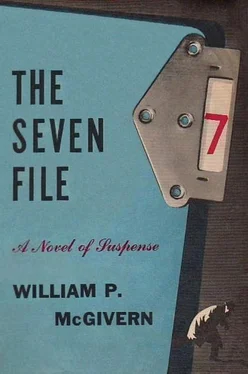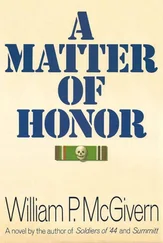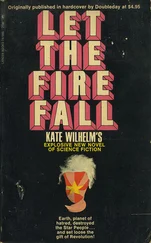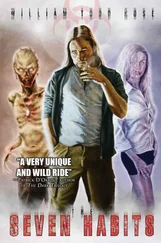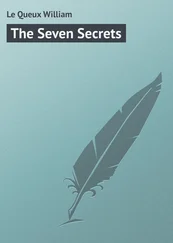William McGivern - The Seven File
Здесь есть возможность читать онлайн «William McGivern - The Seven File» весь текст электронной книги совершенно бесплатно (целиком полную версию без сокращений). В некоторых случаях можно слушать аудио, скачать через торрент в формате fb2 и присутствует краткое содержание. Город: New York, Год выпуска: 1956, Издательство: Dodd, Mead & Company, Жанр: Криминальный детектив, на английском языке. Описание произведения, (предисловие) а так же отзывы посетителей доступны на портале библиотеки ЛибКат.
- Название:The Seven File
- Автор:
- Издательство:Dodd, Mead & Company
- Жанр:
- Год:1956
- Город:New York
- ISBN:нет данных
- Рейтинг книги:4 / 5. Голосов: 1
-
Избранное:Добавить в избранное
- Отзывы:
-
Ваша оценка:
- 80
- 1
- 2
- 3
- 4
- 5
The Seven File: краткое содержание, описание и аннотация
Предлагаем к чтению аннотацию, описание, краткое содержание или предисловие (зависит от того, что написал сам автор книги «The Seven File»). Если вы не нашли необходимую информацию о книге — напишите в комментариях, мы постараемся отыскать её.
The Seven File — читать онлайн бесплатно полную книгу (весь текст) целиком
Ниже представлен текст книги, разбитый по страницам. Система сохранения места последней прочитанной страницы, позволяет с удобством читать онлайн бесплатно книгу «The Seven File», без необходимости каждый раз заново искать на чём Вы остановились. Поставьте закладку, и сможете в любой момент перейти на страницу, на которой закончили чтение.
Интервал:
Закладка:
“That’s about here,” Roth said, putting his finger on the map. “Fifteen miles from Wilmington, Delaware, thirty miles southwest of Philadelphia.”
“He leaves Kennett Square at midnight on Highway One and drives south at thirty miles an hour,” West said. “He keeps going until dawn if necessary — he keeps going until a car pulls up behind him and signals him to stop with three blasts of the horn. Then Bradley drops off the money and continues south for another fifty miles.”
“That will be tough to cover,” Roth said.
“If we cover,” West said slowly.
“The baby may be down that way. South, I mean.”
“Sure. Virginia, Florida, Panama, Peru. There’s a lot of territory south of us.”
“But if they take the money and disappear, where does that leave us?”
West glanced at him. “And suppose they spot us? Where does that leave the baby?”
Roth shrugged his big shoulders and said nothing...
Afterwards, West knew, the correct decision would seem the inevitable one — a wrong decision would be attributed to the judgement of a fool or an incompetent. The only thing that mattered was the baby’s safety. But either path he chose might cost the baby its life. And a million jurors would sit in judgement on the bureau’s decision over their morning coffee and papers. “What the hell was he trying? A grandstand play? Why didn’t he let them have the money? The baby’s the important thing, right?” And if it went the other way: “Chicken-hearted, that’s what they are. They had the bastards right in their hands and didn’t have the guts to close their fists. Why didn’t they have a hundred men waiting when they tried to grab that money? Where were they?”
West didn’t give a damn about those million jurors. He was thinking only of the baby — but the jurors’ arguments were the same ones that sounded in his own mind.
“Let’s set up to cover,” he said quietly. “Let’s be ready.”
“Right,” Roth said.
“Call Philadelphia first. The instructions don’t specify where Bradley is to rent the car. That’s one break. Have Philly plant a convertible for him, equipped with a camera and transmitter that works off a foot pedal. Now let’s see: at thirty miles an hour Bradley will travel about one hundred and eighty miles on Highway One by dawn. Okay, get enough men to cover that stretch thoroughly this afternoon. Spot every garage, diner, restaurant and all the side roads. Prepare small-scale maps of the area on both sides of the highway, secondary roads, rivers, bridges, overpasses — everything. And mark out deserted stretches on Highway One — places where the contact is likely.”
“If we decide to cover, everything’s got to be ready. Enough cars on an intercom hookup, enough men to follow any length of tail job.”
“They’ll be ready.”
West turned back to his desk, still studying the ransom instructions. Regardless of their preparations, this would be risky; the kidnapers had every advantage. They could be miles ahead of Bradley, or miles behind him, choosing their moment of contact from a wide latitude of times and places. They could wait until the road was dark and empty — then make their move.
Roth came to his side later and said, “It’s rolling. What next?”
Nothing more had come in on Duke Farrel, nothing at all on his brother.
“I want more on Creasy,” West said.
“You aren’t sure of him?”
“There’s no proof. He could be the neighborhood crank or a Peeping Tom. He turned down a cab in the rain. Maybe he likes getting wet. He’s watching the Bradleys’ house. Maybe he likes old brownstones. I want more.”
“We’ve been covering him since last night,” Roth said. “We’ve made a duplicate key to his room. Maybe if I took a look around there—”
West glanced at him, a little frown on his face. “We’ve got to know,” he said. “Right now all we’ve got is a handful of smoke.”
Roth said nothing. He wanted to go, he wanted to be doing something positive, but he controlled his impatience; he didn’t want to influence West’s decision.
“Okay,” West said at last. “But for God’s sake be careful, Jerry...”
Roth and an agent named Carstairs parked on Third Avenue just below Thirty-first Street. They waited there almost an hour before the radio in the car crackled, and a voice said, “Subject just leaving building, walking toward Second Avenue.”
Roth picked up his telephone. “All right, I’m going in. Keep your eyes open.”
The agent who had given him this information was stationed in a room at the intersection of Third Avenue and Thirty-first Street. From there he had a clear east-west view of Thirty-first Street.
A few moments later Roth walked briskly into Creasy’s building with a zippered brief case under his arm. In the case were insurance literature, application forms, a rate book — and beneath these a receiver and a transmitter by which he could keep in touch with Carstairs and the agent stationed in the room at the intersection. The hallway was empty and dark, and the house smelled faintly of old wood and German cooking. Roth listened for an instant, and then let himself into Creasy’s room and closed the door quickly.
He was alert for anything and everything. There were I phone numbers on a desk pad, and he made a note of these, and then went rapidly through Creasy’s bureau drawers. The files of genealogical data had no significance for him, but he stared for a few seconds at the faded pictures of silent film stars that covered the wall at the foot of his bed. A movie fan? A hero worshiper? Speculation was pointless, but something in that collection of handsome, forgotten faces alerted his highly developed sense of the incongruous — which in Roth was an intuitive faculty, an almost a priori awareness of significant peculiarities. Scientists have similar antennae, as do doctors and priests, and occasional politicians.
But Roth ignored these ephemeral promptings; there was no time for anything but facts. He turned to the top of the bureau where Creasy’s toilet articles were spread in a disorderly heap, a sorry little monument to a man’s lack of respect for his own body. The bristles of his hairbrush, dark with scurf and oil, were worn down to the wooden back, and the tubes of shaving cream and toothpaste had been squeezed and twisted into little accordions of ugly economy. His bar of soap, partially wrapped in a damp wash cloth, was festooned with swirls of drying suds, and flecked with little curls of hair. All of this added to Roth’s picture of Creasy — from these data he could have drawn a hundred accurate inferences about the man. But they didn’t need inferences now; they needed facts.
Finally he picked up a notebook from a table in the middle of the room — the sort school children use, with ruled paper and cardboard covers in black and white check. Roth leafed through it, aware of a little stir of excitement. Crowley had said the special delivery letter had been written on ruled, copybook paper — and the front page had been tom from this book, and there were pen or pencil indentations on the second page. The message to the Bradleys had been brief — two short sentences — and the marks on the second page were also brief — two short sentences.
Roth made himself think clearly, trying not to give way to a precipitate impatience. The special delivery note was just across the street and it would take only a split second to match its tom edges against the back-bone of this book. He glanced at his watch; he’d been inside five minutes. But time was no yardstick on safety; Creasy might be gone all day, or he might be heading back home this minute.
Roth was suddenly aware that perspiration had broken out on his forehead. To bring the note here might crowd the limits of safety to dangerous lengths. If something slipped it could mean the baby’s life. Arresting Creasy would do no good; they couldn’t know what codes or signals had been arranged between him and the other kidnapers.
Читать дальшеИнтервал:
Закладка:
Похожие книги на «The Seven File»
Представляем Вашему вниманию похожие книги на «The Seven File» списком для выбора. Мы отобрали схожую по названию и смыслу литературу в надежде предоставить читателям больше вариантов отыскать новые, интересные, ещё непрочитанные произведения.
Обсуждение, отзывы о книге «The Seven File» и просто собственные мнения читателей. Оставьте ваши комментарии, напишите, что Вы думаете о произведении, его смысле или главных героях. Укажите что конкретно понравилось, а что нет, и почему Вы так считаете.
